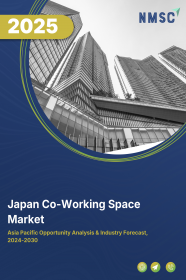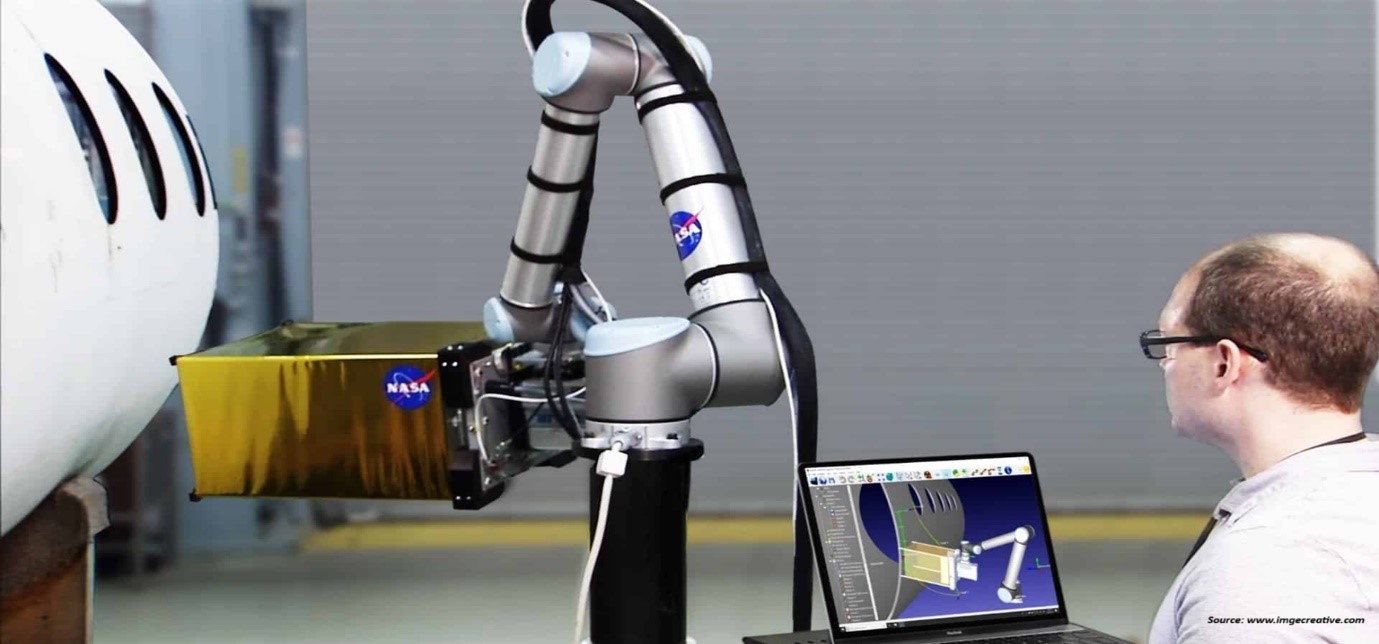
Japan Co-Working Space Market by Business Type (Conventional Co-working, Professional Co-working, and Others), by Business Model (Sub-Lease Model, Revenue Sharing Model, and Owner-Operator Model), and by End User (Independent Professionals, Startup Teams, Small and Medium Sized Enterprises, and Large scale enterprises) –Opportunity Analysis and Industry Forecast, 2024–2030
Industry: ICT & Media | Publish Date: 15-Jan-2025 | No of Pages: 136 | No. of Tables: 102 | No. of Figures: 47 | Format: PDF | Report Code : IC2036
US Tariff Impact on Japan Co-Working Space Market
Trump Tariffs Are Reshaping Global Business
Market Definition
Japan Co-Working Space Market size was valued at USD 311.2 million in 2023, and is predicted to reach USD 1034.2 million by 2030, at a CAGR of 18.6% from 2024 to 2030. Co-working space represents a dynamic and adaptable solution to the evolving needs of businesses. These shared work environments offer flexibility in lease terms and space requirements, appealing particularly to startups and small enterprises seeking to avoid the upfront costs associated with traditional offices. The communal atmosphere encourages networking and collaboration among professionals from diverse fields, fostering innovation and creativity.
Equipped with modern amenities and strategically located, co-working spaces provide cost-effective, scalable, and accessible alternatives for companies seeking a central presence without the constraints of long-term leases. The industry has experienced significant growth as businesses recognize the benefits of this model, embracing the collaborative opportunities and resource-sharing inherent in co-working spaces.
Western Investment and Government Support Drive the Growth of the Market
Despite Japan's startup landscape being smaller compared to economies like the U.S. and China, positive developments are evident. Major Western investment firms displaying interest in Japan signal confidence in its potential. Moreover, proactive measures by the Japanese government, such as tax breaks and support initiatives, aim to encourage startup activity. These combined efforts create an environment conducive to startup growth, fostering innovation and entrepreneurial endeavors.
Strategic Initiatives and Specialized Coworking Spaces Propel Market Expansion
The Beyond Limits. Unlock Our Potential strategy serves as a significant driver in Japan's startup ecosystem, positioning the country as a competitive player globally. The Startup City Project Japan, launched across eight cities, including Tokyo and Osaka, offers comprehensive support for ecosystem building. Specialized coworking spaces tailored to specific needs, such as hospitality-led spaces for overseas companies and initiatives like The Okinawa Remote Work Collective, further expand the market. These initiatives not only cater to diverse communities but also facilitate professional development opportunities, creating a supportive environment for startups and professionals to thrive and collaborate in Japan.
The Growing Concerns Related to Cybersecurity Hinders the Market Growth
The cybersecurity threat presents a substantial obstacle to the widespread adoption of coworking spaces, particularly for businesses managing sensitive data. These collaborative work environments, reliant on shared technological infrastructure, are susceptible to potential security breaches that may result in unauthorized access and data leakage. This issue is especially relevant for firms entrusted with safeguarding client confidentiality and proprietary information. The communal aspect of coworking spaces amplifies risks associated with network security, physical access, and device vulnerabilities, prompting concerns among businesses regarding the protection of sensitive information.
The Incorporation of Augmented Reality (AR) and Virtual Reality (VR) Paves the Way for Future Market Opportunities
The introduction of Augmented Reality (AR) and Virtual Reality (VR) into coworking is positioned to foster numerous opportunities for the growth of the coworking space market. These immersive technologies are expected to redefine the experience of remote collaboration, enabling individuals to actively participate in virtual meetings, collaborative projects, and training sessions with a heightened sense of physical presence. By transcending geographical barriers and enriching the interactive aspect of remote work, AR and VR are predicted to increase the attractiveness of coworking spaces equipped with these technologies.
For instance, in May 2023, Sightful, a company based in Tel Aviv, unveiled Spacetop, the world's premier Augmented Reality (AR) laptop, securing USD 61 million in funding from investors such as Aleph and Corner Ventures. Spacetop seamlessly integrates reality with AR, delivering an advanced personal computing experience that surpasses the limitations of traditional laptops, thus revolutionizing the landscape of coworking and remote collaboration. This integration is poised to attract a broader audience seeking innovative and technologically advanced solutions, thereby making a significant contribution to the expansion and progression of the coworking space market.
Competitive Landscape
The Japan co-working space market comprises of various companies including WeWork Companies LLC, Regus Group Companies, The Executive Centre, Spaces, Blink Japan G.K, JustCo, Impact Hub GmbH, RYOZAN PARK, CIC, FUTRWORKS, NTT Urban Development Corporation, Servcorp, The Coworking Spaces, Mitsubishi Estate Co., Ltd., Mitsui Fudosan Co., Ltd. and others.
The Japan Co-Working Space Market Key Segments
By Business Type
-
Conventional Co-working
-
Professional Co-working
-
Others
By Business Model
-
Sub-Lease Model
-
Revenue Sharing Model
-
Owner-Operator Model
By End User
-
Independent Professionals
-
Startup Teams
-
Small and Medium Sized Enterprises
-
Large scale enterprises
REPORT SCOPE AND SEGMENTATION:
|
Parameters |
Details |
|
Market Size in 2023 |
USD 311.2 Million |
|
Revenue Forecast in 2030 |
USD 1034.2 Million |
|
Growth Rate |
CAGR of 18.6% from 2024 to 2030 |
|
Analysis Period |
2023–2030 |
|
Base Year Considered |
2023 |
|
Forecast Period |
2024–2030 |
|
Market Size Estimation |
Million (USD) |
|
Growth Factors |
|
|
Companies Profiled |
15 |
|
Market Share |
Available for 10 companies |
|
Customization Scope |
Free customization (equivalent up to 80 working hours of analysts) after purchase. Addition or alteration to country, regional, and segment scope. |
|
Pricing and Purchase Options |
Avail customized purchase options to meet your exact research needs. |
KEY PLAYERS
-
WeWork Companies LLC
-
Regus Group Companies
-
The Executive Centre
-
Spaces
-
Blink Japan G.K
-
JustCo
-
Impact Hub GmbH
-
RYOZAN PARK
-
CIC
-
FUTRWORKS
-
NTT Urban Development Corporation
-
Servcorp
-
The Coworking Spaces
-
Mitsubishi Estate Co., Ltd.
-
Mitsui Fudosan Co., Ltd.

















 Speak to Our Analyst
Speak to Our Analyst





















